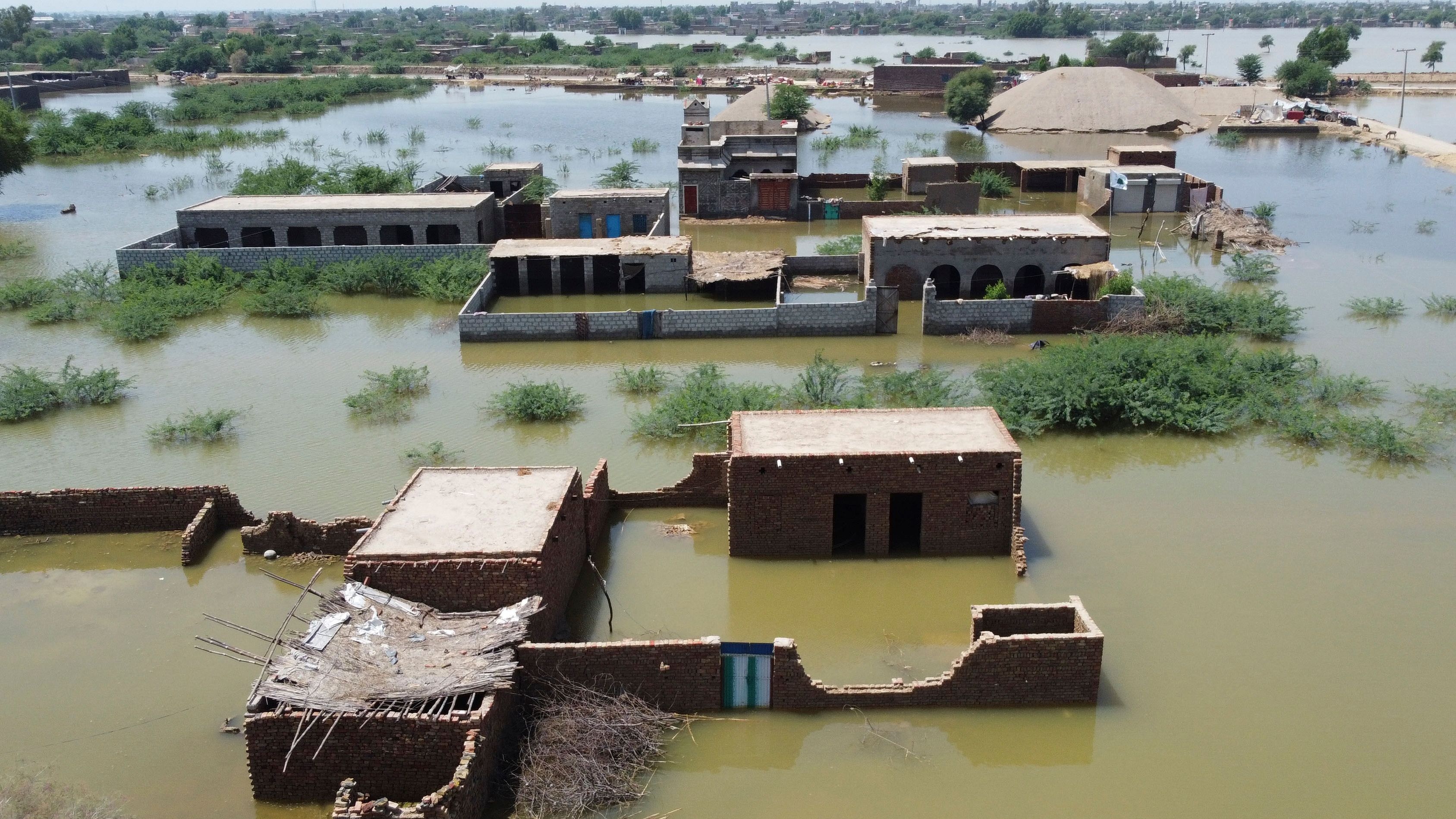Climate change: is the Earth at a crossroads?
New Intergovernmental Panel on Climate Change Report shows exceeding 1.5°C of warming would lead to irreversible adverse impacts

A free daily email with the biggest news stories of the day – and the best features from TheWeek.com
You are now subscribed
Your newsletter sign-up was successful
Humanity is at a “climate crossroads”, said Damian Carrington in The Guardian. “What we do in the next few years will determine our fate for millennia.”
That’s the message of the landmark report published this week by the Intergovernmental Panel on Climate Change (IPCC), which was compiled by the world’s leading climate experts and takes stock of the latest research. The window of opportunity to sustain “a liveable and sustainable future”, the report claims, is “rapidly closing”.
Global temperatures are already 1.1°C above pre-industrial levels, and they’re likely to reach 1.5°C above pre-industrial levels in the early 2030s regardless of what we do now. The real question is whether we stabilise the global temperature rise around that threshold or just blast right through it.
The Week
Escape your echo chamber. Get the facts behind the news, plus analysis from multiple perspectives.

Sign up for The Week's Free Newsletters
From our morning news briefing to a weekly Good News Newsletter, get the best of The Week delivered directly to your inbox.
From our morning news briefing to a weekly Good News Newsletter, get the best of The Week delivered directly to your inbox.
The former option will require greenhouse gas emissions to peak “at the latest before 2025” and steeply reduce thereafter.
‘Irreversible adverse impacts’
If we exceed 1.5°C of warming, “we won’t like it”, said Eugene Robinson in The Washington Post. The IPCC predicts with “high confidence” that it would lead to “irreversible adverse impacts” on vulnerable ecosystems.
Were we to hit 2°C of warming, the effects of increased wildfires, drying of peatlands and permafrost thawing would make it very hard to turn back the temperature rise. It would be “like trying to climb a greased pole”.
One consolation is that the IPCC believes green reforms have made the “most dystopian scenarios”, involving 4°C or more of warming, much less likely than once feared.
A free daily email with the biggest news stories of the day – and the best features from TheWeek.com
On the other hand, it believes its projections for when adverse impacts would kick in were too conservative. We’re already suffering some of the extreme weather events it thought would occur when we hit 1.5°C of warming.
‘All that’s missing is the political will’
The good news, said Jack Kessler in the Evening Standard, is that we can still rescue the situation. Renewable technologies are available and rapid progress is possible. “Only 66 years separated the Wright brothers’ first flight and Neil Armstrong setting foot on the Moon.” All that’s missing is the political will.
Call me cynical, said Elizabeth Kolbert in The New Yorker, but I can’t see this report spurring urgent action when so many previous ones have failed to.
According to a recent study, China approved 106 gigawatts’ worth of new coal-fired power plants in 2022, the equivalent of two large plants a week. The Biden administration has just approved a huge new oil drilling venture in Alaska.
“Can actions like this be squared with halving emissions by 2030 and eliminating them by 2050? The simple answer is no.”
-
 American universities are losing ground to their foreign counterparts
American universities are losing ground to their foreign counterpartsThe Explainer While Harvard is still near the top, other colleges have slipped
-
 How to navigate dating apps to find ‘the one’
How to navigate dating apps to find ‘the one’The Week Recommends Put an end to endless swiping and make real romantic connections
-
 Elon Musk’s pivot from Mars to the moon
Elon Musk’s pivot from Mars to the moonIn the Spotlight SpaceX shifts focus with IPO approaching
-
 As temperatures rise, US incomes fall
As temperatures rise, US incomes fallUnder the radar Elevated temperatures are capable of affecting the entire economy
-
 The world is entering an ‘era of water bankruptcy’
The world is entering an ‘era of water bankruptcy’The explainer Water might soon be more valuable than gold
-
 Climate change could lead to a reptile ‘sexpocalypse’
Climate change could lead to a reptile ‘sexpocalypse’Under the radar The gender gap has hit the animal kingdom
-
 The former largest iceberg is turning blue. It’s a bad sign.
The former largest iceberg is turning blue. It’s a bad sign.Under the radar It is quickly melting away
-
 How drones detected a deadly threat to Arctic whales
How drones detected a deadly threat to Arctic whalesUnder the radar Monitoring the sea in the air
-
 ‘Jumping genes’: how polar bears are rewiring their DNA to survive the warming Arctic
‘Jumping genes’: how polar bears are rewiring their DNA to survive the warming ArcticUnder the radar The species is adapting to warmer temperatures
-
 Environment breakthroughs of 2025
Environment breakthroughs of 2025In Depth Progress was made this year on carbon dioxide tracking, food waste upcycling, sodium batteries, microplastic monitoring and green concrete
-
 Crest falling: Mount Rainier and 4 other mountains are losing height
Crest falling: Mount Rainier and 4 other mountains are losing heightUnder the radar Its peak elevation is approximately 20 feet lower than it once was